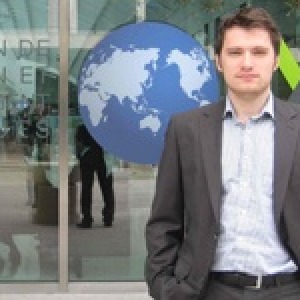
Interview
Daniel Kupka (Economics of Science and Innovation '10) is an economist and policy analyst at the Organisation for Economic Co-operation and Development's Directorate for Science, Technology and Industry (Science and Technology Policy Division).
You started at the OECD in a trainee program for BSE graduates. When were you promoted to your current position?
What is a typical day like?
As a policy analyst, my main task is to provide support to the Working Party on Innovation and Technology and the Committee for Scientific and Technological Policy (CSTP), in particular in issues that are of interest to OECD member countries. Recently, these include the role of demand-side innovation policies, commercialization of knowledge and the transition to a green growth path.
My working day usually starts with updating my supervisor about the latest project progress and we then agree on the next steps need to be taken. Depending on the project phase, I work either independently or in a team of 2-3 people. A project lasts normally 9 months and undergoes multiple reviews until it will be submitted to member countries. Basically, it involves getting in contact with stakeholders in industry, ministries and academia, drafting reports, attending thematic workshops and presenting the results in meetings.
In addition, we also deal with cross-directorate and intra-directorate activities. For example, we drafted a section on the review of the US Procurement System (represents roughly 9% of GDP) in terms of its likely effects to drive innovation. I am amazed by the continuous learning environment. This is key as it keeps you motivated for your subject even under high time pressure. A high responsibility and a certain degree of freedom in pursuing the projects add up to a perfect mix.
Tell us about one of your favorite projects.
You practiced this type of policy presentations during the master program. What else from your coursework has been useful for you at the OECD?
All in all, it sounds like this have really come together for you in Paris.
Maybe a weekend in Barcelona could fit in somewhere...
